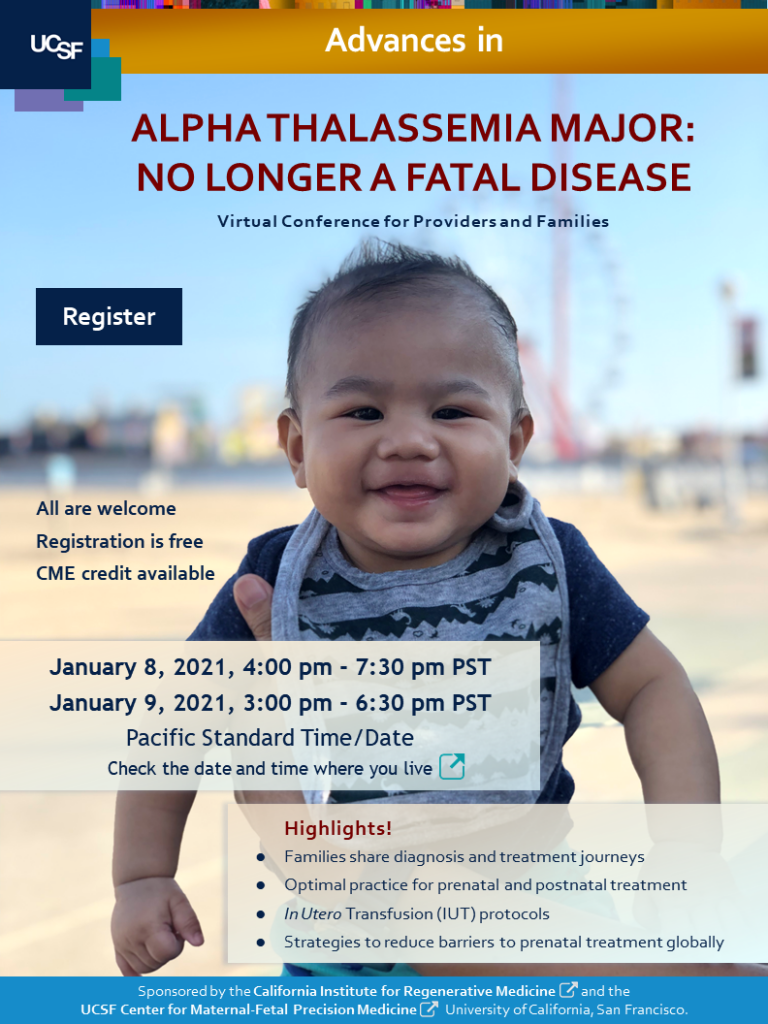January 8-9, 2021 (N. America) / January 9-10, 2021 (Southeast Asia)
The Center for Maternal-Fetal Precision Medicine will host an online international conference on Alpha Thalassemia Major (ATM), which was once considered universally fatal in utero. If left untreated, a fetus with ATM will develop severe anemia and hydrops and will die before or shortly after birth. However, recent evidence from patient registries has demonstrated that when ATM is diagnosed early in pregnancy, in utero transfusions (IUT) can reverse hydrops and enable survival with good neurological outcomes.
VIEW CONFERENCE RECORDINGS

CONFERENCE GOALS:
- Demonstrate the impact of prenatal therapy on postnatal and long-term outcomes of Alpha Thalassemia Major (ATM)
- Understand best practices for prenatal and postnatal treatment of ATM
- Bring together families affected by ATM to share their diagnosis and treatment journeys
- Build international connections among scientists, medical professionals, and patient advocates to advance treatments for ATM worldwide
Two half-day sessions are organized around prenatal screening, diagnosis, and therapies for ATM pregnancies (Day 1); and postnatal management of ATM from birth to adulthood (Day 2). Participants include clinicians, scientists, and families affected by ATM.
Prenatal topics include: the natural history of ATM, ultrasound diagnosis of hydrops fetalis, genetic diagnosis of ATM, management of pregnancies affected by ATM, protocols for IUT, and an update on the ongoing phase 1 clinical trial of in utero hematopoietic stem cell transplant at the University of California, San Francisco. We will hold a specific forum to outline best practices for prenatal management with IUT.
Postnatal topics include: protocols for chronic transfusions, bone marrow transplantation, and complications of ATM management. Barriers that inhibit access to prenatal and postnatal treatment, and strategies to make therapies more accessible globally will be discussed.
Note regarding schedule: Because ATM disproportionately affects individuals of Southeast Asian ancestry, we planned the conference so that people living in Southeast Asia and Pacific Islands can participate during daytime hours. All are welcome.
Resources from the UCSF Fetal Treatment Center:
- Prenatal Screening & Diagnosis Algorithm for Thalassemia
- UCSF Fetal Treatment Center | Alpha Thalassemia Major





